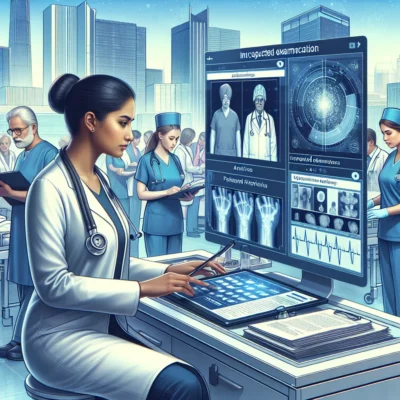In the rapidly evolving field of healthcare, technology plays a pivotal role in enhancing patient care and operational efficiency. Among the technological advancements, inbuilt analysis tools stand out as a transformative force. These tools help healthcare providers make informed decisions, personalize patient care, and improve overall healthcare outcomes. Let’s delve into the world of inbuilt analysis tools and explore their impact on healthcare.
Understanding Inbuilt Analysis Tools in Healthcare
Inbuilt analysis tools in healthcare refer to integrated software systems designed to process and analyze vast amounts of medical data. These tools are embedded within healthcare systems and enable practitioners to derive actionable insights from various data sources.
Role of Inbuilt Analysis Tools
- Data Processing: These tools can handle diverse types of data, including electronic patient records, medical imaging, laboratory test results, and even real-time monitoring data from wearable devices.
- Integration: By integrating data from multiple sources, inbuilt analysis tools provide a comprehensive view of a patient’s health, facilitating better diagnosis and treatment planning.
Streamlining Clinical Decision-Making
The ability to make quick and accurate clinical decisions is crucial in healthcare. Inbuilt analysis tools aid in this process by providing real-time data analysis.
- Real-Time Analysis: With access to up-to-the-minute patient data, healthcare providers can make timely decisions that significantly impact patient care.
- Case Studies: For instance, hospitals utilizing inbuilt analysis tools have reported improved diagnostic accuracy. One notable example is the use of AI-driven imaging analysis to detect early signs of diseases like cancer, leading to earlier interventions and better patient outcomes.
Personalized Patient Care
Personalized medicine is the future of healthcare, and inbuilt analysis tools are at the forefront of this movement.
- Tailored Treatments: By analyzing a patient’s genetic information, medical history, and lifestyle factors, these tools help customize treatment plans that are more effective for individual patients.
- Predictive Analytics: These tools also employ predictive analytics to anticipate patient health trends, allowing for proactive management of chronic conditions and reducing the risk of complications.
Enhancing Operational Efficiency
Beyond patient care, inbuilt analysis tools significantly enhance the operational aspects of healthcare facilities.
- Resource Management: By optimizing resource allocation, these tools help reduce wait times and improve the utilization of hospital facilities.
- Impact on Staff: The automation of routine data analysis tasks reduces the workload on healthcare staff, allowing them to focus more on patient care and less on administrative duties.
Improving Patient Outcomes
Data-driven care strategies have a profound impact on patient outcomes.
- Evidence of Improvement: Studies have shown that hospitals leveraging inbuilt analysis tools report higher patient satisfaction and better health outcomes. These tools facilitate early detection of potential health issues and ensure adherence to treatment plans.
- Patient Engagement: By providing patients with insights into their health data, these tools encourage active participation in their own healthcare, leading to better adherence to prescribed treatments.
Future of Inbuilt Analysis Tools in Healthcare
The future of inbuilt analysis tools in healthcare is promising, with advancements in AI and machine learning poised to revolutionize the field.
- AI and Machine Learning: These technologies will enable even more sophisticated data analysis, uncovering patterns and insights that were previously inaccessible. This will lead to more precise diagnostics and personalized treatment plans.
- Challenges and Ethics: However, the increasing use of data analytics in healthcare also raises important ethical considerations. Ensuring data privacy and addressing potential biases in AI algorithms are critical challenges that the industry must tackle.
As we continue to harness the power of inbuilt analysis tools, the potential for improved healthcare outcomes is immense. By embracing these technologies, healthcare providers can deliver more personalized, efficient, and effective care, ultimately enhancing the quality of life for patients around the world.
